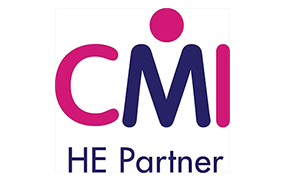BSc (Hons) Agricultural Business Management
The evolution of how food is produced, marketed, and controlled has created a need for professionals who can manage increasingly complex global supply chains, delivering value for businesses and consumers.
Course overview
The BSc (Hons) in Agricultural Business Management will support you to develop the unique mix of knowledge and skills required to work in a range of roles in the extended food supply chain. Whether you want a career in a corporate environment directing supply systems, working in a family business or, in a SME refining delivery processes, this degree will support you to achieve your goals.
Core modules will give you a solid grounding in business while specialist modules will encourage you to explore food supply systems and their management in a wide range of contexts.
You will attend networking events, gain contacts through our alumni network, and have the opportunity to take part in a range of trips and activities to broaden your perspective.
After graduating you may also receive the Chartered Management Institute (CMI) Level 5 Diploma in Management and Leadership. In addition, membership to CMI is free for three months after graduation.
Work placement
In the second year of the degree programme, you will apply and develop your expertise during a 15-week work placement. Not only could you find yourself working for prestigious companies in the UK or across the world, you will also develop your confidence and make a range of industry contacts.
For UK students (as of March 2020) a visa may not be required but this may change. For non UK/EU nationals (current Tier 4 visa students), the student will have to arrange their own visa.
Accreditations and partnerships
We are delighted to work with a wide range of businesses, partners and accreditation organisations, some of which are shown below:



Course content
Across the programme Employability Standards are built into every module. These are designed in consultation with employers, so you will always be able to see the relevance of what you are studying to your future career.
Timetables
Please note that while we make every effort to ensure that timetables are as student-friendly as possible, scheduled teaching can take place on any day Monday to Friday. Wednesday afternoons are normally reserved for sports and societies activities.
Modules
Each module is worth a specified number of credits. Each credit equates to 10 hours of total study time. Total study time includes scheduled teaching, independent study and assessment activity.
Full-time students normally take modules worth 60 credits per 15 week semester but this can vary depending on your elective choice. Part-time students taking proportionally fewer credits per semester. All students take a total of 120 credits per level and 360 credits for the degree as a whole. Your overall grade for your degree is based on marks obtained for modules taken at level 5 and level 6 (weighted 30:70 accordingly).
The modules available for this degree are shown below. They may change for your year of study as we regularly review our module offerings to ensure they’re informed by the latest research and teaching methods.
Year one
In the first year, you will focus on the fundamentals of business management, marketing and finance.
- 1236 Entrepreneur in Action: Understand and assess the characteristics of an entrepreneurial mindset
- 1325 Introduction to the Agri-Food Industry: Develop an understanding of the agrifood supply chain from farm to fork
- 1414 Principles of Marketing: Explore the theories which underpin marketing and learn how to put these into practice
- 1415 Global Business Environment: Gain an understanding of the economic, political and cultural factors which constitute the Global Business Environment
- 1417 Business informatics: Learn how to apply key business concepts in practice to improve management processes
- 1418 People and Organisations: Discover the theories behind organisational behaviour
- 1440 Academic and Practical Skills: Learn and try out a range of practical skills used in the land and farming sectors
- 1443 Business Finance and Accounts: Learn the fundamentals of accountancy and use software to create and clearly present financial information
Year two
- 2023 Financial Management: Explore how business finance affects the corporate planning process
- 2032 Marketing Management: Identify and interpret relevant market research data to recommend future strategic directions for a company
- 2258 Intrapreneurship and small business development in urban and rural context: Analyse the challenges faced by small & medium-sized businesses in urban and rural contexts
- 2317 Industry Placement: Complete 15 weeks of work experience to develop key skills for the world of work
- 2337 Personal and Professional Development Skills and Employability: Review and critically assess professional communication standards and other competencies needed for successful client and business management
- 2348 Society and Food: Analyse the impact of climate, international trade and policy on food security and supply chains
- 2349 The Resilience of Agro-Ecosystems: Explore key concepts and theories around sustainable agriculture and different methods for promoting it
- 2378 Research and Evidence: Explore the wide range of research methodologies available, and learn how to select the optimal approach for a given scenario
Year three
In the final year, you will have the opportunity to select elective modules and specialise in subjects of particular interest and relevance to your future career aspirations.
- 3300 Dissertation: Develop a detailed research proposal that presents a well-developed research aim supported by clear research objectives
- 3316 Changing Consumer Behaviour: Interpret consumer behaviour using concepts from diverse disciplinary perspectives including psychology, sociology, anthropology and consumer culture
- 3320 Organising and Organisation: Understand the processes which affects how organisations are formed
- 3323 Food Ethics and Governance: Explore different ethics frameworks and how they inform decision making about food
- 3332 Specialist study module: Gain the skills needed to successfully launch a business
Plus a choice of TWO electives selected from:
- 3041 Corporate Finance: Explore how finance affects the corporate world and the individual
- 3244 Estate Business Management and Diversification: Learn about the factors which drive diversification and how they impact estate management
- 3242 Negotiation in Business: Explore the process of negotiation as a form of persuasion and problem-solving within professional and personal communication contexts
- 3317 International Marketing: Explore the impact of the global environment on international marketing decisions
- 3325 Rural Entrepreneurship: Gain the skills needed to successfully launch your own business
- 3340 Farm Business Consultancy: Explore budgeting, financial forecasting, risk management and overall evaluation of the financial health of a farm business
The availability of electives to individual students will be dependent on timetabling considerations and on sufficient students electing to take part.
Disclaimer information
The University has established various rules and regulations that you must agree to and follow if you accept an offer to study with us. View our full disclaimer notice.
Careers and graduate destinations
The Agricultural Business Management core modules emphasise themes of: creativity, innovation, using one’s initiative, dealing with ambiguity and risk management. We pride ourselves on being able to help our students acquire the skills they need to foster their initiative and creativity as responsible global citizens. Our graduates have gone on to pursue careers within companies worldwide and within the following roles:
- Agricultural consultant
- Commodity trader
- Agricultural marketing
- Agricultural operation specialist
- Facility operations manager
- Business development manager
"I enjoy the practicality of the learning and how interactive the lecturers are with Students"
James Edmondson, student
Entry requirements
Typical offers
Required: GCSE minimum five GCSEs at Grade C/4 including English Language and Mathematics (or Maths Numeracy for Welsh applicants) plus satisfactory level 3 qualifications:
- A-Level: (example grades CCC) – minimum of 96 UCAS tariff points (applicants should have either three A-levels or two A-level and two AS level subjects or equivalent qualifications)
- C&G Advanced Technical/BTEC - Level 3 Extended Diploma (1080) at Merit-Merit-Merit
- C&G NPTC/C&G Advanced Technical/BTEC - Level 3 Diploma (720), Extended Certificate (360) and 90-Credit Diploma (540) acceptable when accompanied by other Level 3 qualifications
- International Baccalaureate: 26 points
- Access to Higher Education: 45 credits at level 3, of which a minimum of 15 must be awarded at Distinction and 15 at Merit or higher (Pass at Functional Skills level 2 are accepted in lieu of GCSE English & Mathematics)
Other level 3 qualifications will be considered.
Visit the UCAS website to calculate your UCAS Tariff points from the qualifications and grades achieved.
You may also be eligible for a contextual offer if you’re from one of our link colleges, have been in care, from a non-white ethnic background, live in an area with low progression rates to university or you are a veteran/child of an armed forces family.
Flexible entry
The University welcomes interest from applicants who may not have the standard entry requirements. A wide range of qualifications and experience are accepted in order to join University degree programmes. The University always considers evidence of personal, professional (APL) and educational experience, (APEL), which show an ability to meet the demands of their intended programme of study.
Further information
Alternative entry routes are available for a range of other qualifications. Prior experience is also considered, subject to approval by the programme manager and admissions staff.
Read more general information about our entry requirements.
If you don't meet the entry requirements of this degree, you may be eligible for one of our Foundation degree courses or another related degree course.
International students will also need to achieve IELTS Academic or equivalent at the appropriate level for your programme of study. English language requirements for international students.
For any further help, please contact our admissions team:
- Email: admissions@rau.ac.uk
- Telephone: +44 (0)1285 889912
Fees
2025-26 Applicants
For the academic year 2025-26 the tuition fees for this course are:
| UK | International | |
|---|---|---|
| Full-time | £9,535 per year | £16,950 per year |
For part-time study, please contact admissions@rau.ac.uk for further information.
Please also refer to the funding your time at university page.
Tuition fees may be subject to an inflationary increase each year as set out in our Access and Participation Plan and are subject to Government and regulatory body conditions.
If you are an Irish national you can check if you meet the requirements for Home Fees. Please visit the UKCISA website and consult the pdf guide “England HE – who pays Home Fees”. First check category ‘3 years in Republic of Ireland/UK/Islands, settled in UK’ or ‘Brexit temporary offer for courses starting before 2028: Irish citizens with residence in Europe or overseas territories’. You will possibly need to be fee assessed when you submit an application for study to the RAU.
Scholarships
The University offers a wide range of generous fee waivers and bursaries. To find out more about the these, please visit the bursaries, awards and scholarships page.
Ready to take the plunge? Apply now
Applications should be made by the UCAS deadline to ensure we are able to offer you a place on your first choice course. However, if you have missed the deadline please contact Admissions@rau.ac.uk as there are usually places available.
If you would like to apply during UCAS Extra or Clearing, please check that we have places available.
Applicants wishing to study on a course on a part-time basis will need to apply directly to the RAU.
Please contact admissions@rau.ac.uk to discuss your requirements and obtain an application form.